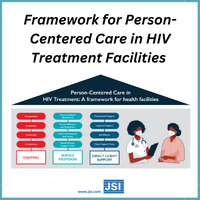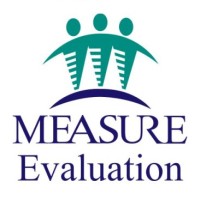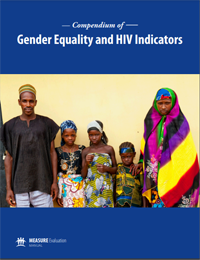
Person-centered care approaches can help people living with HIV stay in treatment and improve their overall quality of life. However, a consistent approach to utilizing…
Read More...Showing results for: HIV & AIDS

Person-centered care approaches can help people living with HIV stay in treatment and improve their overall quality of life. However, a consistent approach to utilizing…
Read More...Discussing the use of PrEP may be difficult for service providers in certain scenarios. To address this topic, JSI developed a poster titled, “PrEP Your…
Read More...To facilitate building of knowledge and understanding around Undetectable = Untransmittable (U=U) in a youth response manner, the Elizabeth Glaser Pediatric AIDS Foundation’s Committee of…
Read More...RISE Haiti-SPOTLIGHT developed a “Training Guide for Improving the Client-Provider Relationship in Person-Centered HIV Service Delivery in Health Facilities” through a collaborative and inclusive approach.…
Read More...At the International Conference on AIDS and STIs in Africa (ICASA), the John Snow Institute, PATH, WHO, and Social Health and Empowerment Feminist Collective organized…
Read More...
This presentation, created by MEASURE Evaluation, discusses monitoring and evaluation of gender and HIV. It assumes a basic knowledge of monitoring and evaluation. Starting with…
Read More...
The compendium of indicators is the result of an international collaboration of multi and bilateral donors (including UNWomen, UNAIDS, WHO, USAID, PEPFAR, GFATM), civil society,…
Read More...Against the backdrop of the continuing COVID-19 pandemic, ICAP and the Columbia Mailman School of Public Health commemorated World AIDS Day 2021 with an event…
Read More...Johns Hopkins University’s Bloomberg School of Public Health presents a podcast with evidence and experts to help listeners understand today’s public health news. Start listening…
Read More...The Family Planning and Reproductive Health Indicators Database provides a comprehensive listing of the most widely used indicators for evaluating family planning and reproductive health…
Read More...